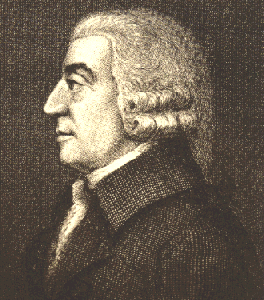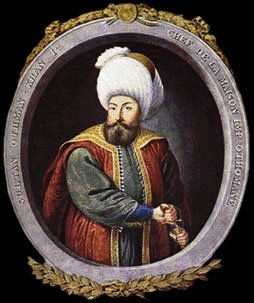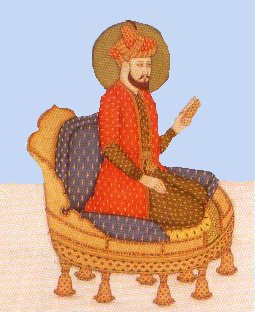Dealing with diversity…
This blog is intended to be a discourse of reclaiming our culture. It will study the need to re-claim our social, political and economic culture that has been disintegrated, and displaced by the forces of corrupt governments, greedy corporations, money and power corrupt politicians, laisse faire economists, cynical academics, orientalist writers, facists, secular extremists, nationalists, communists, religious fanatics and ultra right-wing conservatives.
September 27, 2006

What has transformed each one of us living in today's generation to be so much more selfish than our previous generations yesterday?
 unexpected and interesting reaction from anwar ibrahim in response to lee kuan yew's remarks. anwar cites cambridge professor and nobel laureate Amartya Sen who has concluded in his brilliant paper that Lee's definition and understanding of "Asian values" to be inconsistent and obsolete. i had uploaded that paper in this blog a long time ago which is lengthy and wordy but worth reading every word of it.
unexpected and interesting reaction from anwar ibrahim in response to lee kuan yew's remarks. anwar cites cambridge professor and nobel laureate Amartya Sen who has concluded in his brilliant paper that Lee's definition and understanding of "Asian values" to be inconsistent and obsolete. i had uploaded that paper in this blog a long time ago which is lengthy and wordy but worth reading every word of it. Singapore for the last two decades had managed to serve as a hub for ASEAN. The region itself was roaring with high growth Tiger economies then and Singapore supported regional businesses and governments through its positioning of its services in finance, trading, services etc. Foreign investors too were rushing to the region then and were requiring these services which were not yet well established in the neighboring countries, hence naturally turned to Singapore for such services.
Dear Orientalists, Seculacrats, Kemalists, Politicians, Neo-Liberals, Journalists, Media, White Supremists, Seperatists, Neo-Cons, Islamophobics....
the letter penned and signed by thirty eight leading Muslim scholars and leaders of the Muslim world in response to the Pope's remarks made by His Holiness on 12 September 2006 has finally been published by straits times. its a positive sign, yet i will stick by my criticism that it will have published it immediately had only osama written that letter in his own idiosyncratic way.
i once explained to my best friend, an american white chap, while residing under the same roof during university days, that the significance of ramadan is to seek forgiveness from God and therehence seek His love and that the signficance of Eid-ul-Fitr is to seek forgiveness from everyone else and therehence seek their love. he got so excited and on the day of eid he will wake up earlier than he normally will and he will block me from leaving the house till i apologize to him for every thing i did. in the subsequent eid he overslept and so he waited for me to return from mosque and demanded me to seek forgiveness from him. he was so thrilled by this exercise cos he explained that if he had to ever do the same, that will be the last thing for him to do... to seek forgiveness from another person, one naturally has to lower themselves, swallow their pride, bruise their ego which is rather a painful and bitter process which interestingly only produces the nectar of healthier relations. we can see this especially amongst politicians. even when they are at the core of fault, the most incorrigible ones will refuse to apologize and when they do, bitter enemies only unite. its human to err. but its not only divine who should forgive.
Thirty eight leading Muslim scholars and leaders have signed a joint open letter to the Pope in the spirit of goodwill to respond to the remarks made by His Holiness on 12 September 2006.All the eight schools of thought and jurisprudence in Islam are represented by the signatories. (refer to earlier post)
In Singapore public and social culture, there is an inherent lack of employment of critical mass of professionals trained in those areas such as social scientists( e.g. economists, sociologists, psychologists), public affairs experts (e.g. public finance experts, international relations etc) . Instead the positions of organizations that deal with public or social issues there is a prevalent tendency to fill them with technocrats such as those trained in business studies, engineering, accountants, lawyers, doctors etc.
Thirty eight leading Muslim scholars and leaders have signed a joint open letter to the Pope in the spirit of goodwill to respond to the remarks made by His Holiness on 12 September 2006.All the eight schools of thought and jurisprudence in Islam are represented by the signatories, including a woman scholar. The letter is unique in the history of interfaith relations and reflects the positive response from Muslim world for Vatican's call for dialogue.
the rhetoric that Islam was spread by sword always intrigued me. can a faith be really spread by sword? if humans have no capacity to rebel at a moment of the sword or later, perhaps then it can be spread by the sword. even if a human succumb to fear at that instance, subsequently over time be it days or months or years or decades later, the human or his offsprings will indeed rebel. humans are one species that you can never hold them down forever against their will.


(According to the document available in the State Library of Bhopal,India, Babur Shah left the following will to his son Humayun Shah:)"My son, take note of the following: Do not harbor religious prejudicein your heart. You should dispense justice while taking note of thepeople's religious sensitivities, and rites. Avoid slaughtering cowsopenly in order that you could gain a place in the heart of thenatives. This will take you nearer to the people.Do not demolish or damage places of worship of any faith and dispensefull justice to all to ensure peace in the country. Islam can betterbe preached by love and affection, rather than tyranny andpersecution. Avoid the differences between the shias and sunnis. Lookat the various characteristics of your people just as thecharacteristics of various seasons."
[Source: http://en.wikipedia.org/wiki/Mughal#Babur.27s_will_to_Humayun]